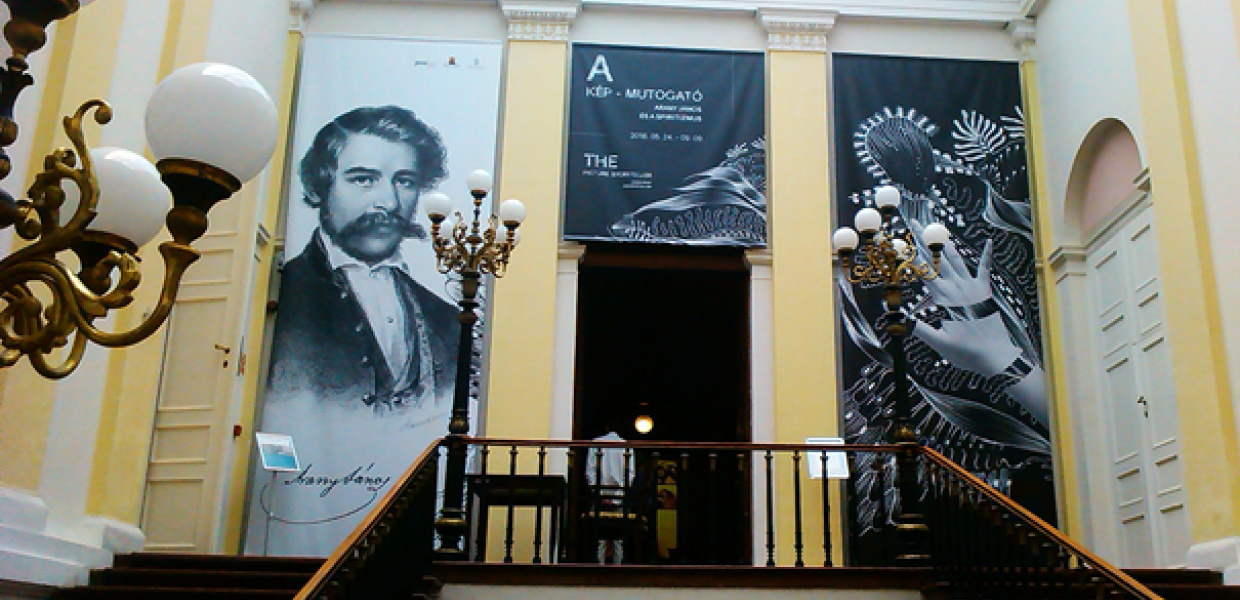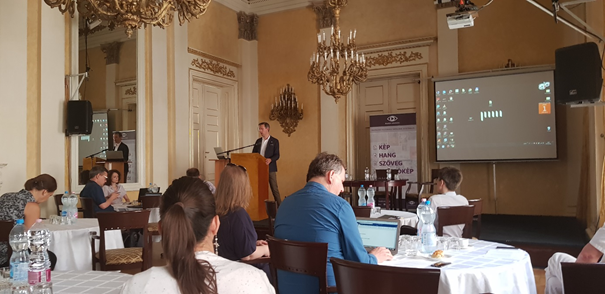The Power of Three: reflections on a Hungarian national workshop with Europeana
What motivates Hungarian cultural institutions to publish their collections with Europeana? The opportunity to inspire people by telling stories with the material.

- Title:
- The workshop was held at in the Petőfi Literary Museum
- Creator:
- Federica Fantone
- Copyright:
- CC BY-SA
Metadata and collections experts from Europeana spent two days in Budapest meeting the largest Hungarian aggregator, Forum Hungaricum Non-profit Ltd., and running a workshop with Hungarian cultural heritage institutions
The power of metadata quality
High-quality metadata is crucial for the visibility of collections in Europeana. The richer and more well-structured the metadata, the more likely it is that the material will be returned in search results. Aggregators are the key intermediaries between cultural heritage institutions and Europeana, enabling the full potential of digitised collections to be realised.
Europeana’s Federica Fantone and Douglas McCarthy visited Forum Hungaricum to explore ways in which improvements in metadata quality could enhance data visibility in Europeana Collections. Adding information about the language used to describe objects, and making a clear distinction between information about the physical object and information about its digital representation were identified as two priority tasks. Forum Hungaricum now has the chance to present this specific feedback to its network of partners.
The power of frameworks and case studies
While good collaboration between aggregators and Europeana is important, it is vital cultural heritage institutions express their opinions too. This is the basis for every national workshop that Europeana has organised to date. As at previous events, the Europeana Publishing Framework was the focal point for the Budapest workshop, which was co-organised by the Petőfi Literary Museum, Forum Hungaricum and Europeana.
Case studies are a great way to bring the Publishing Framework to life. Julia Katona from Budapest’s Schola Graphidis Art Collection explained how its splendid Art Nouveau collections were featured in Europeana’s Art Nouveau season in spring 2017.
Just back from Europeana’s national workshop in Varna, Michal Čudrnák, Head of Digital Collections and Services at the Slovak National Gallery, introduced the Webumenia portal and described how the Slovak National Gallery has benefited from publishing its collections in Europeana.

Douglas McCarthy, Europeana’s Collections Manager, Art & Photography, presenting at the Hungarian National Workshop, Etele Szüts, CC BY-SA.
The power of the network
After the workshop presentations, there was a lively discussion amongst the workshop participants in the room. Two common challenges emerged: firstly, keeping pace with technical and legal developments. Secondly, operating in a framework of conservative policies within organisations. Both challenges can mean that the potential of digitised collections is not fully exploited. On the positive side, becoming acquainted with diverse audiences and involving them with engaging storytelling was recognised as a major opportunity.
By publishing cultural heritage on its platform, Europeana can support institutions with sharing and promoting their collections to new audiences. With a greater understanding of these possibilities, and closer connections with Europeana and its network of culture professionals, workshop participants in Budapest can share this knowledge within their own organisations and to communities.
‘I am glad to state that the workshop in Budapest was useful and successful for both the organisers and the participants. I trust that we will have opportunities to work together for European culture in the near future as well’. Etele Szüts from Forum Hungaricum Non-profit Ltd.

